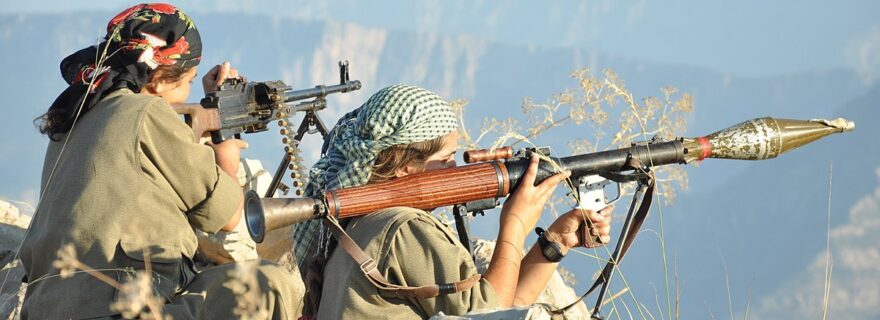A Theory of Structural Radicalisation
We frequently focus on push and pull forces when trying to understand the foundations of radicalisation. While there is a tendency to find a path across these factors to ensure the balance of analysis, there is often a reliance on the idea that ideology must play a role despite the overwhelming reality of structural forces. The concept of structural radicalisation is highlighted in a recent study published in Studies in Conflict and Terrorism (by Kerem Övet, James Hewitt, and Tahir Abbas), which emphasises the importance of viewing both push and pull factors as variations on push—that is, concerning the more pervasive structural issues that underpin radicalisation ideas in general. We explore issues of ethnic and social conflict in the southeastern regions of Turkey as a case study in the theorisation of this concept.
The goal of this study is to provide a complete picture of the causes of radicalisation in Turkey’s eastern and southeastern regions. Due to geographically unique circumstances, the research highlighted how ideologically diverse terrorist groups may attract and radicalise the same community. It emphasises contextual factors as major predictors of radicalisation by stressing structural and systemic dynamics as influential in radicalisation among the PKK, Kurdish Hezbollah, and ISIS, all of which reflect ethno-nationalist and Islamist beliefs. The findings suggest systemic problems stemming from state oppression and injustices, which are exacerbated by geographic, economic, and demographic factors, as the driving forces for radicalisation in Turkey. Unlike other research on radicalisation, which illustrates structural variables pushing toward radicalisation while ideology pulls, this study reveals how structural aspects both push and pull in Turkey’s Eastern and Southeastern regions. Long-term oppression serves as a foundation for early socialisation for Kurds in eastern and southeastern Turkey, while suppression marginalises communities and generates conflicting identity narratives, whether Islamist or ethno-nationalist. Decades of official repression of Kurdish identity, political marginalisation, human rights violations, forced migrations, and economic desertion have caused immense animosity, propelling some to the PKK, Kurdish Hezbollah, or ISIS.
These findings back up prior research that shows a link between state repression and political violence (Abbas and Yigit, 2016). At the micro and meso levels of study, research that emphasises the relevance of personal and group grievances in radicalisation practises, as well as research that emphasises overt violations by state forces as a cause of populist reaction, gains traction. In some areas, a lack of economic development has led to relative deprivation and a lack of economic opportunity, fueling grievances against the state while simultaneously developing notions of discrimination and a lack of status. Economic inequality has been exacerbated by restrictions on Kurdish political representation, particularly since the peace process collapsed. These economic conditions increase the appeal of radical organisations, which may provide both financial opportunity and a solution to inequities. As a result, our findings offer support to literature that emphasises the importance of socioeconomic and political isolation in terms of political violence.
Our findings, which point to geographic remoteness and mountainous terrain as factors that promote radicalisation, lend support to the analysis of the risk of ethnic conflict as a function of distance and terrain roughness. The topography of eastern and southeastern Turkey impedes governmental access, economic development, and service provision, leading citizens to seek work with non-state organisations. Meanwhile, the close proximity to state borders provides an opportunity for local communities. Alternative economic prospects in the cross-border black market, bolstered by cross-state familial relationships, generate pull factors for cooperation or association with terrorist organisations operating there, regardless of ideology. As a foundation for radicalisation, our concept of structural radicalisation highlights the overlapping impact of several systemic, demographic, geographic, and economic factors unique to Turkey’s eastern and southeastern regions. Although the study’s generalisability is a limitation, it contributes to a theoretical understanding of radicalisation by highlighting how an interplay of structural factors can produce both push and pull factors that influence radicalisation and recruitment to ideologically diverse groups operating in the same locality.
Further research on the relationship between these groups and how specific structural characteristics promote radicalisation is needed to expand our understanding of these processes. We believe that the impact of displacement on radicalisation is a topic worthy of further investigation.


